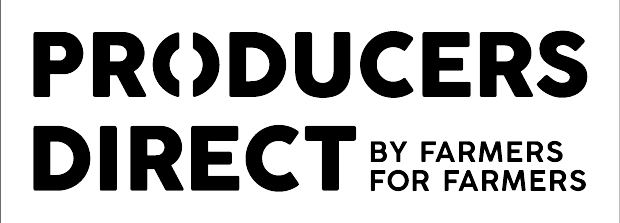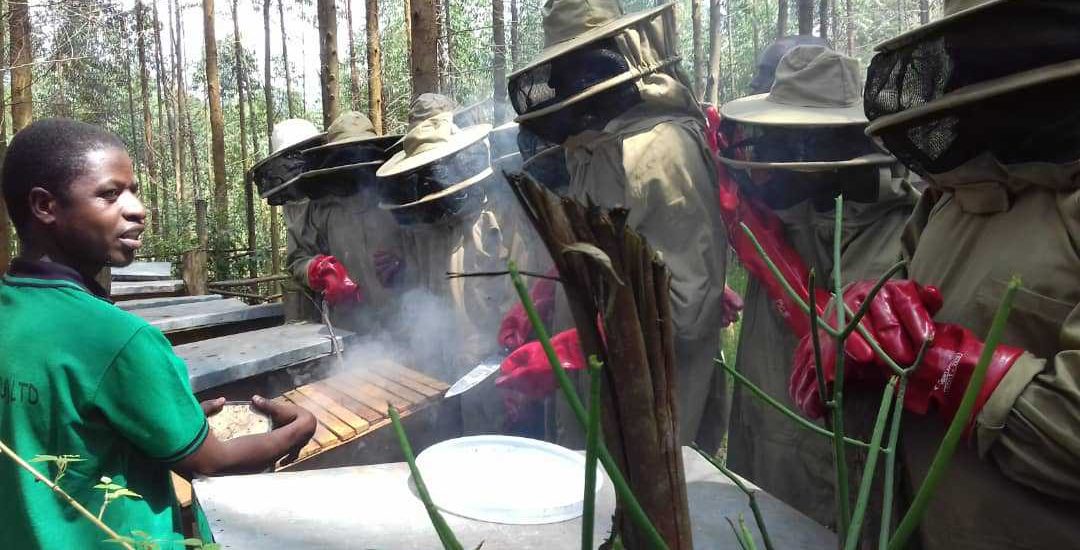“ I attended beekeeping training at the Sireet Centre of Excellence (COE) office and after that training, another team of farmers came to teach us more about beekeeping. From these training sessions, I learned more about beekeeping and how to get a market for honey and other farm products.”
At Producers Direct, we understand that agriculture is a key contributor to the livelihoods of smallholder farmers and we work with them to support ownership of key crop value chains and on-farm diversification into multiple crops as a key way to increase incomes. By growing multiple additional crops and products, in addition to the main cash crop, there’s potential for farmers to earn more and grow their incomes.
We’ve seen first-hand the wealth of experience, knowledge and expertise which exists in underserved rural farming communities. Our model and approach focuses on creating opportunities for smallholders to share, build upon and strengthen this knowledge and expertise. Using our farmer-led COEs, smallholder farmers are learning how to implement new and innovative farming techniques through peer to peer training to transform their farms into sustainable businesses.
One of the ways our farmers are diversifying is through beekeeping. This is a fairly manageable venture that farmers can add around their farm households, it is flexible and does not require as much tendering as keeping livestock and other crops. Additionally, beekeeping fits well into smallholder farming systems because it does not take up a lot of space, does not rely on other factors like soil fertility or compete with other resources needed by crops and livestock, making it a suitable venture even for young people.
With this in mind, Producers Direct has introduced modern beekeeping through training and recruitment of bee farmers across East Africa and Peru, to enable them to set up bee hives, produce and sell honey. Using our four-part, farmer-led support services, farmers are trained on beekeeping, the importance of documenting farm records and how they can use the data to make better beekeeping decisions. Farmers then receive funding in form of beehives and equipment needed to launch their honey enterprises. Bee farmers then work with our network of youth coordinators who create links to local markets where farmers can sell their honey.
Through the four main components of our model, we support farmers to start their businesses, earn additional incomes and share their expertise with other farmers. “In one of the training sessions, we got loans in the form of bee hives to help us set up our beekeeping businesses. This was helpful because we are now able to put our training to practical use.“ Our bee farmers in Uganda and Tanzania have, to date, received 986 Langstroth bee hives and 60 complete kits of protective honey harvesting gear.
“In one of the training sessions, we got loans in the form of bee hives to help us set up our beekeeping businesses. This was helpful because we are now able to put our training to practical use.”
Alongside our work with farmers, we are creating a farmer-owned brand of honey. By purchasing Producers Direct honey, hundreds more smallholder farms will become sustainable businesses. This honey is currently on sale in Kenya with plans to scale out across our network.
Beekeeping has the potential to supplement or enhance the incomes of our smallholder farmers across East Africa and Peru, adding an additional $29 a month (over 50% increase for farmers earning $1.35 a day), according to our research. Our goal is to continue to work together with farmers to sustain this growth, support their beekeeping enterprises by providing them with finance and linking them with markets where they can sell their honey and in future, other bee hive products.





1 thought on “Working with Farmers to Increase their Incomes Through Beekeeping”
Comments are closed.